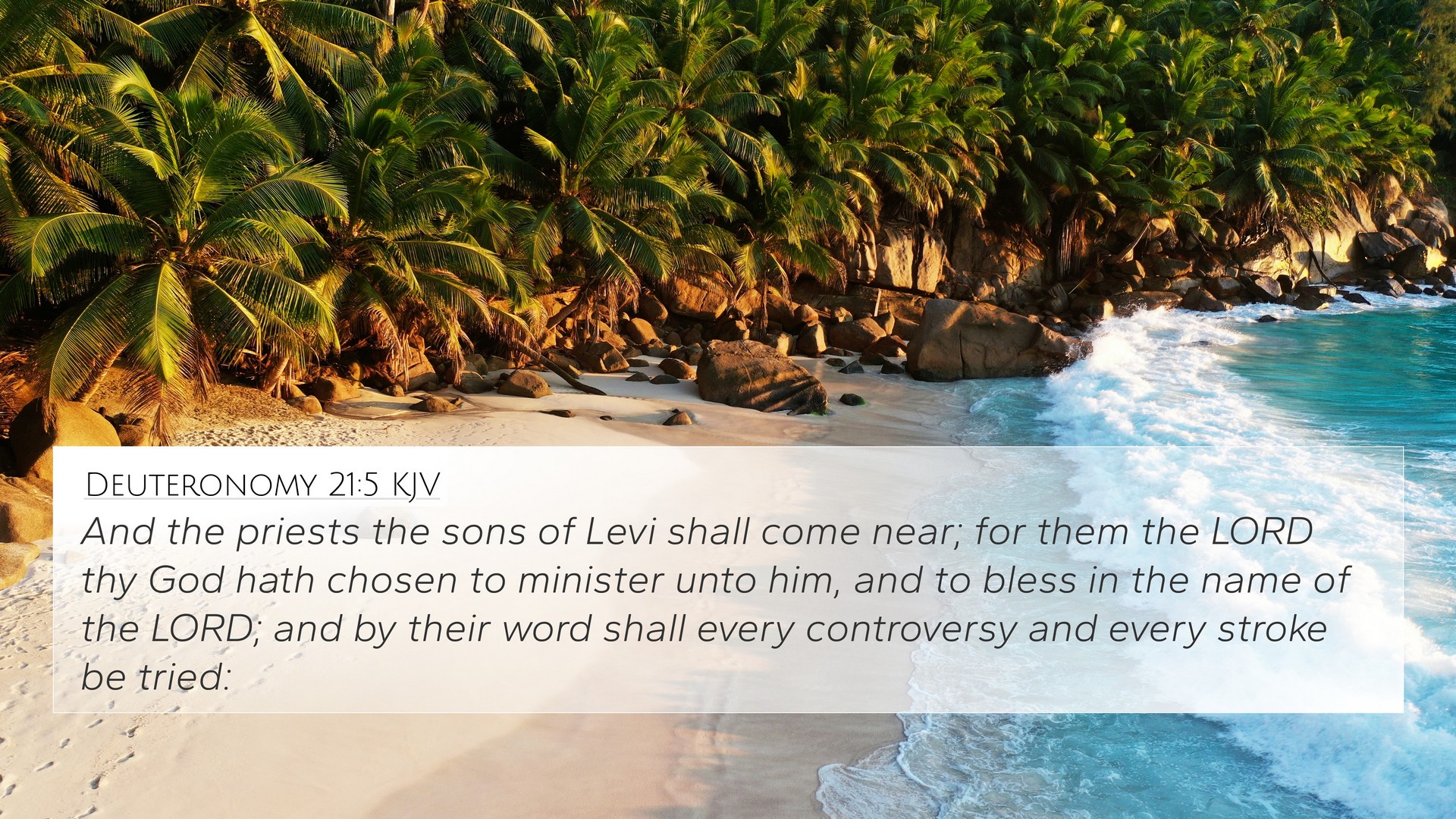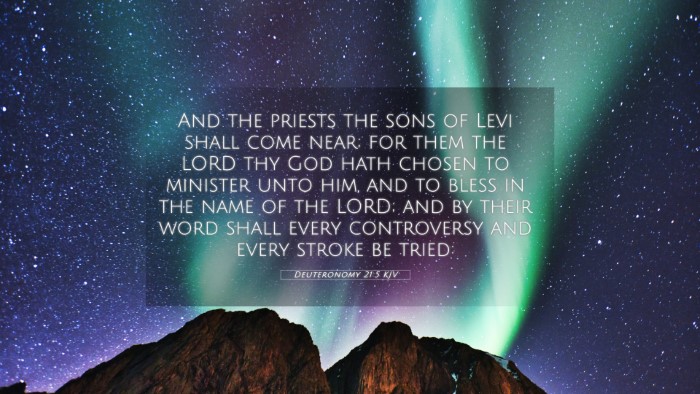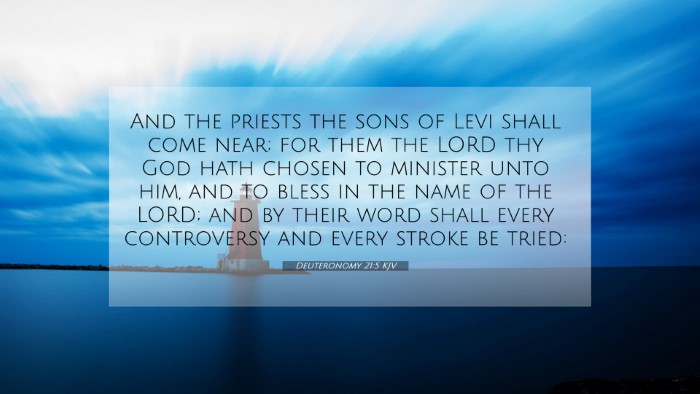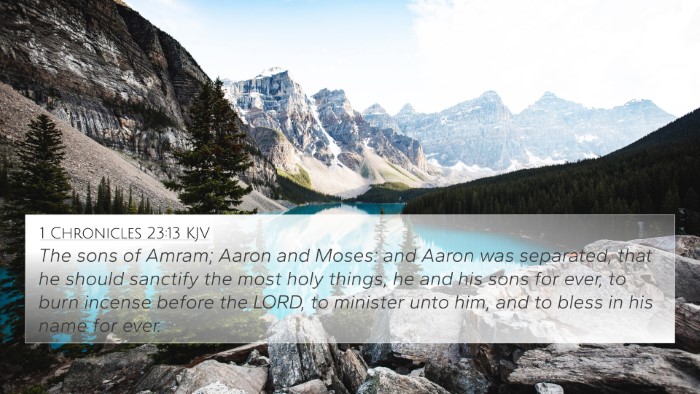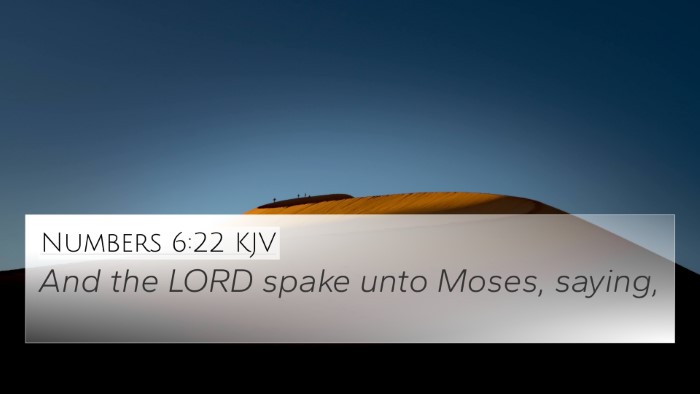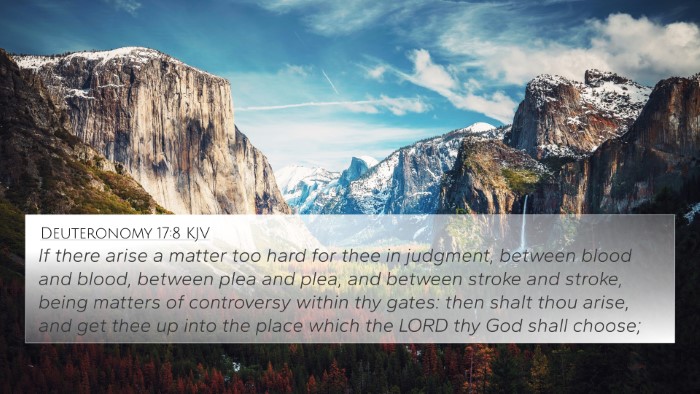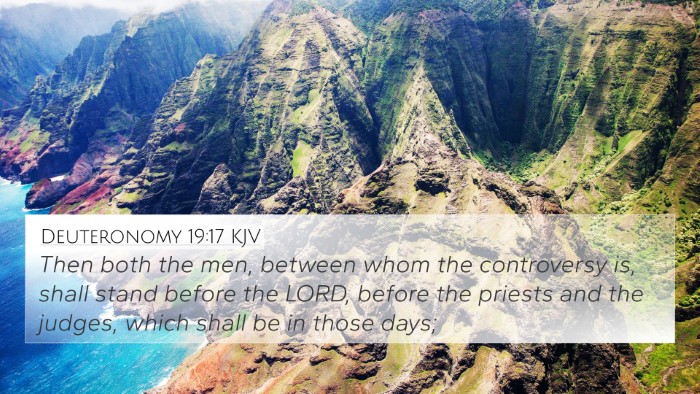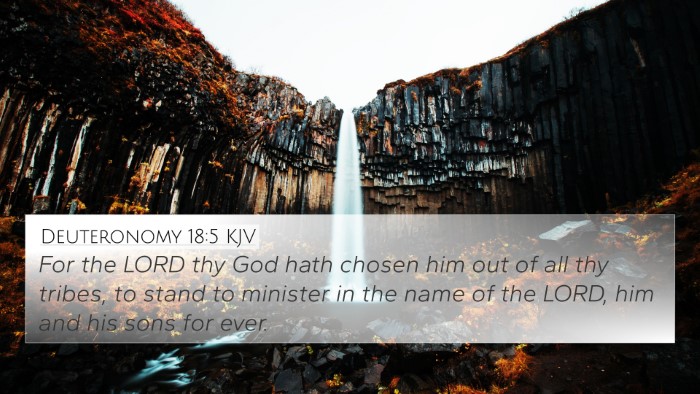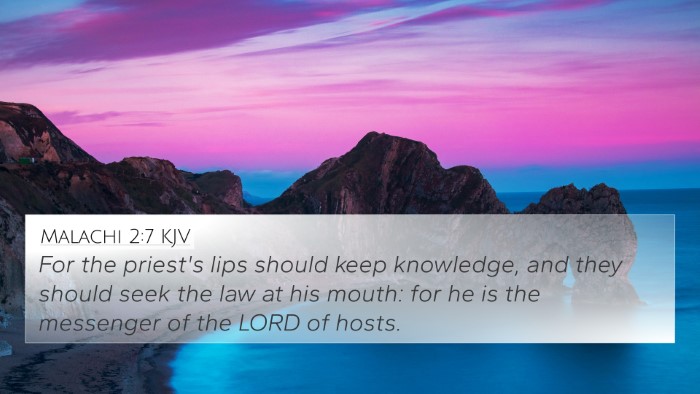Understanding Deuteronomy 21:5
Deuteronomy 21:5 states: "And the priests, the sons of Levi, shall come near; for them the LORD thy God hath chosen to minister unto him, and to bless in the name of the LORD; and by their word shall every controversy and every stroke be tried."
This verse emphasizes the role of the Levitical priests as mediators between God and the people. Their responsibilities include ministering in the temple and providing resolution in disputes.
Insights from Public Domain Commentaries
The meanings derived from several Bible commentators provide a rich understanding of this verse:
Matthew Henry's Commentary
Matthew Henry notes the divine selection of the Levites, emphasizing the sacred duty bestowed upon them. He highlights that their primary role is to serve God and the community through worship and adjudication. The priesthood, being a special class, was set apart for the sacred service of God, which illustrates the importance of spiritual leadership and commitment to divine guidance.
Albert Barnes' Notes
Albert Barnes underscores the authority of the Levites in legal and spiritual matters. They were to bless the people in God’s name and were considered the representatives of divine law in Israel. This brings forward the connection between religious practice and societal justice, and the integral part of priestly functions in maintaining order and righteousness within the community.
Adam Clarke's Commentary
Adam Clarke elaborates on the implications of this verse relating to the role of the priesthood in offering blessings. Clarke provides an understanding of how this practice establishes a connection between the divine blessings and everyday affairs of the Israelites, reinforcing their dependence on God’s favor for prosperity and peace in their lives.
Bible Cross-References
This verse can be cross-referenced with several other scriptures, which collectively enrich the understanding of priestly duties and divine authority:
- Numbers 18:7: Discusses the responsibilities of the priests in maintaining the holy offerings.
- Malachi 2:7: Emphasizes the role of the priest as a teacher of knowledge and the bearer of the law.
- Hebrews 7:11-12: Refers to a greater priesthood established by Jesus Christ that fulfills the Old Testament requirements.
- 1 Samuel 2:25: Relates a situation in which priests are mediators between God and the people.
- Exodus 28:1: Describes the consecration of Aaron and his sons as priests, establishing their role in the community.
- Deuteronomy 17:8-13: Discusses procedures for dealing with difficult cases in Israel, linking to the priest's role in adjudication.
- Leviticus 10:11: Outlines the priest's duty to teach the Israelites the statutes given by God.
- Deuteronomy 33:8-10: Highlights the Levite's unique relationship with God and their responsibilities toward Israel.
- 1 Chronicles 23:13: Mentions the descendants of Aaron chosen as priests, emphasizing a continuous legacy of priesthood.
- Matthew 5:23-24: Connects the offering of gifts at the altar with the importance of reconciliation, lending insight into the priestly roles.
Thematic Connections
The themes presented in Deuteronomy 21:5 resonate throughout the Bible, illustrating the significance of divine authority, intercession, and community structure. The linkage between Old Testament practices and New Testament teachings shows continued relevance in understanding God's instruction for human relationships and spiritual order.
Tools for Bible Cross-Referencing
For those studying this verse and seeking to deepen their understanding through cross-referencing, consider utilizing:
- Bible Concordance: A resource for finding words or phrases across the scriptures to identify related verses.
- Bible Cross-Reference Guide: A tool that connects verses based on themes, keywords, or narratives.
- Bible Study Software: Digital tools often contain built-in systems for exploring inter-related verses.
- Commentary Series: Comprehensive resources that delve deeply into verse meanings while providing cross-references.
- Study Bibles: Many editions offer marginal notes that include references tied to verses for enhanced understanding.
Inter-Biblical Dialogue
Deuteronomy 21:5 initiates a conversation that spans both Testaments. The examination of how priestly duties are fulfilled from the Old Testament sacrificial system to their transformation in the New Testament through Christ offers a rich area of study. Linking Old Testament prescriptions for priestly conduct with New Testament teachings about leadership, service, and mediatorship opens up pathways for ongoing reflection on God's timeless principles for His people.
Conclusion
In summary, Deuteronomy 21:5 signifies more than a historical directive; it encapsulates a larger theological framework concerning God's interaction with humanity through appointed mediators. Understanding this verse in conjunction with related scriptures and commentaries allows for a more nuanced grasp of its implications for faith, governance, and community life. By engaging in comparative Bible verse analysis, believers can appreciate the interconnectedness of God's word and its authority throughout the ages.
